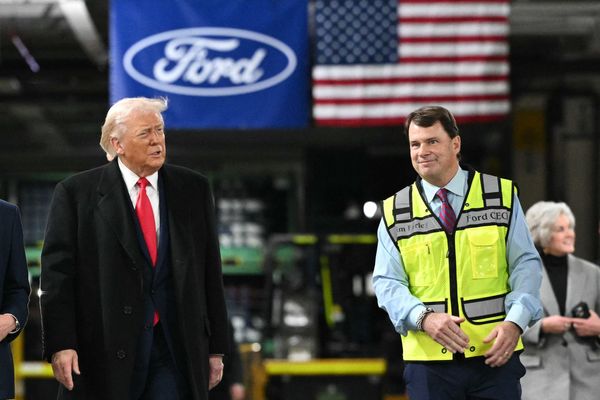The car finance scandal already looks like PPI 2.0… but with an even bigger bill. Millions of motorists could soon be entitled to compensation on their hire purchase agreements, which could cost the industry an eye-watering £44bn to put right, compared with the £38bn spent on Britain’s costliest and longest-running consumer scandal, into payment protection insurance.
All eyes are now on the Supreme Court, which is preparing to deliver a judgment over commissions paid to car dealers for fixing up finance agreements. The overwhelming majority of consumers take out loans when purchasing vehicles. A percentage of the interest typically goes to the dealer when they arrange these. Those commissions can be very substantial.
Last year, the Court of Appeal ruled in favour of three motorists who said they were not informed that their dealers were being paid 25 per cent of the interest. The ruling, which came as a nasty shock to lenders and dealers, said it was unlawful for the latter to receive any commission without first obtaining the customer’s “informed consent”.
Lenders Close Brothers and FirstRand, a South African outfit, took the case to the Supreme Court. If the Court of Appeal’s decision is upheld, a huge number of borrowers will be eligible for compensation.
One lender argued to me that “the price is the price”. And let’s be fair here: the buyer was under no obligation to have their motor dealer fix their finance. They always had the option to seek a better deal if unhappy with their quote (including the commission, whether or not they knew about it).
More obviously dubious are what’s known as discretionary commission arrangements (DCAs), under which brokers and dealers boosted the amount of interest to receive higher commission payments. The Financial Conduct Authority (FCA) banned the practice in 2021, and there are now 20,000 DCA complaints with the Financial Ombudsman Service. The FCA is in the throes of a review to ascertain whether consumers were overcharged.
Lenders argue that this wasn’t always the case. They say the dealer’s primary motivation is always to secure the sale. They would, at least in some cases, seek to do this by finding financing that the consumer felt they could afford, even if this meant lowering their cut.
However, it is clear that there was some sharp practice going on. Estimates suggest that up to 40 per cent of car finance deals could be eligible for compensation for DCA car loans taken out between 2007 and 2021.
Here’s the thing: the consequences of the Supreme Court ruling could be with us for years to come. Some of those could ultimately hurt consumers. PPI was a flat-out bad product, a rip-off that was frequently unnecessary, appallingly expensive and often sold to people who couldn’t claim. But now it is gone. Car finance is different. It is a necessary product, just one with some bad features and sharp practice.
An industry source I spoke to said this: “If you were to design a new system from scratch today, you wouldn’t include them. But what you have to remember is that people are still going to need it in future, and that’s when this could get messy.”
Very messy. There are fears that smaller providers – and smaller dealers who relied on commissions to stay in business – could go bust in a worst-case scenario.
Larger firms, such as Lloyds (the market leader), Santander and Barclays, will weather the storm. They’ve dealt with this sort of thing before. They know how the game works. They have handled mass compensation schemes in the past, so money has been set aside to cover payments.
They also have the capacity to claw back their losses through higher prices in future, especially if this drives a stake into the market and bankruptcies result, leading to less competition. Will we get to a place where some customers can’t secure loans in future if they’re deemed risky? It is possible.
True, new players typically come in where there’s a profitable consumer base to serve. But they may steer clear of this market if they fear getting caught in a similar squall in future.
The government, which has publicly called for a “balanced ruling” after trying and failing to intervene in the case, is sufficiently concerned that it has reportedly investigated introducing legislation to overturn an adverse outcome. That would be hugely controversial. Plus, the legislation would have to apply retrospectively.
Why are ministers willing to risk the wrath of the consumer lobby? They fear that this is already hurting a spluttering economy by damaging the UK in the eyes of overseas investors. If the ruling effectively lobs a financial grenade into the middle of this large and important market, it will do even more damage.
The Supreme Court ruling is far from the end of this process. We’re still at the beginning. It could ultimately take years to clear this up. The real winners in a worst-case scenario look set to be the claims management companies (CMCs), which have been swamping YouTube, Instagram and other platforms with cringeworthy ads prospecting for clients. Unwanted texts and phone calls are sure to follow.
A mass compensation scheme that cuts them out of the process would arguably be a win for both sides because CMCs only add costs that someone has to pay.
This could happen if the FCA can construct a scheme that automatically includes consumers unless they consciously opt out and decide to approach the courts. Most would probably prefer to avoid that.
What does the overturning of a City trader’s fraud conviction mean for deregulation?
Young people! Here’s what you need to know about ‘buy now, pay later’ loans
Like Sadiq Khan, I’m a Heathrow nimby – here’s what I’d like to do to the airport…
Trump’s ‘Tariffmageddon’ is back… and with a vengeance
Cruz Beckham is right – you can’t beat wearing white Speedos on holiday







